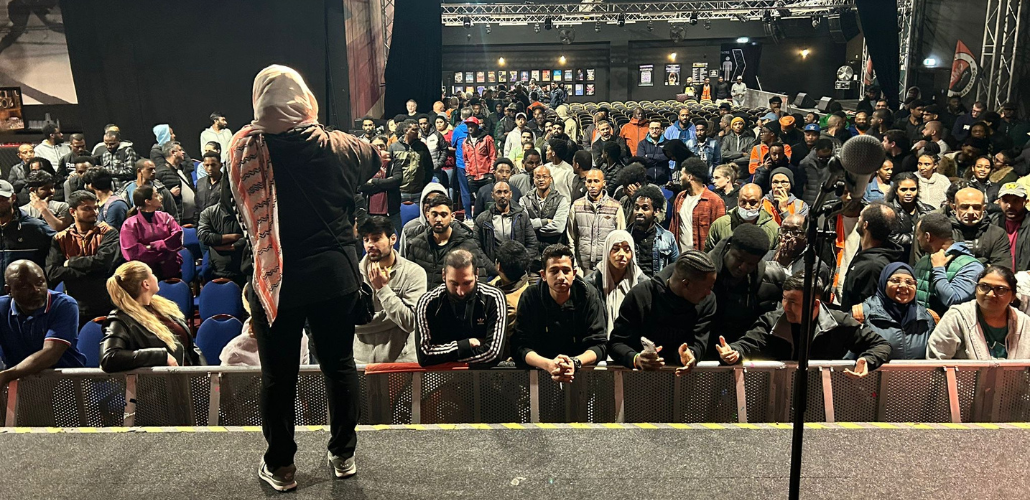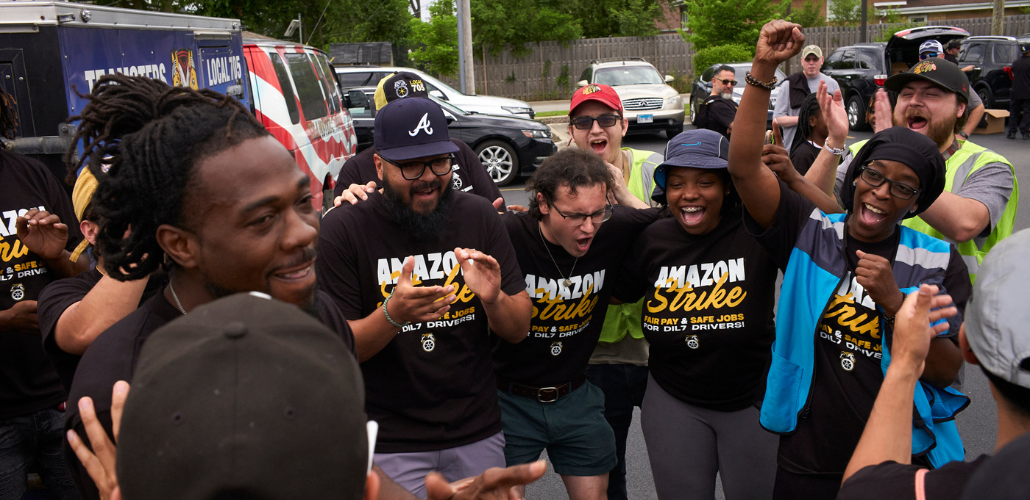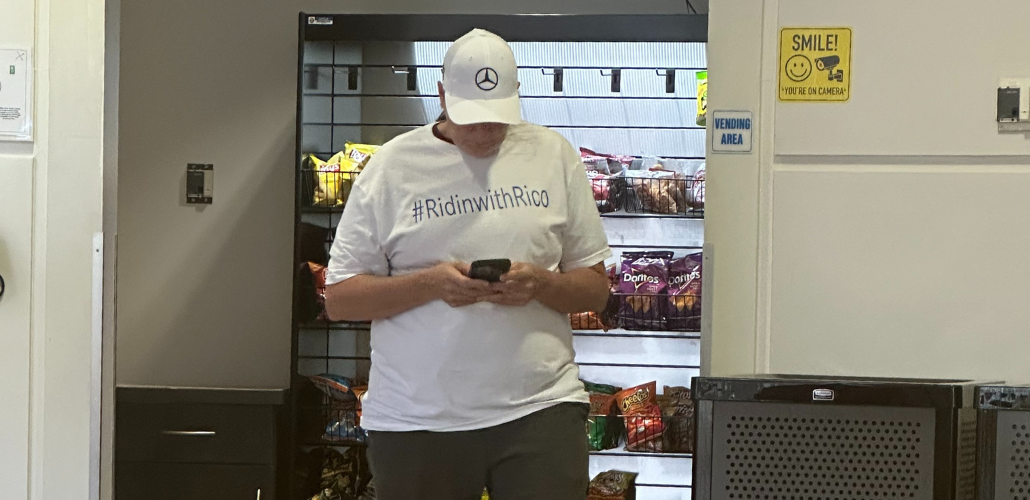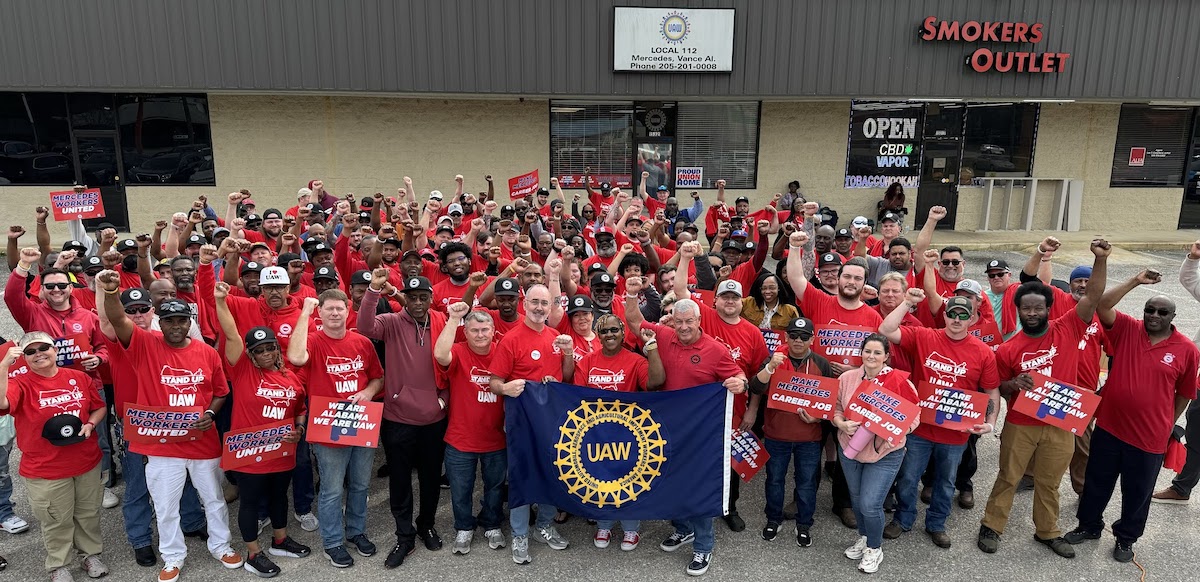Reform Caucus Wins Amazon Labor Union Officer Elections
Blog:
Amazon workers at the JFK8 fulfillment center on Staten Island, New York, voted to elect reform officers in the first-ever leadership election.
Unions Representing Six Million Workers Demand an End to All U.S. Military Aid to Israel
Blog:
Seven national unions representing 6 million workers in the United States called on President Joe Biden today to end all military aid to Israel. The news came as Israeli Prime Minister Benjamin Netanyahu, a wanted war criminal, came to Washington to speak to Congress tomorrow.
Mercedes Enlists a Pastor in Its Union-Busting Campaign
Blog:
As Mercedes workers began their 12-hour shifts at 6 a.m. today, their phones buzzed with a company text message: “Here in Alabama, community is important, and family is everything. We believe it’s important to keep work separate. But there’s no denying, a union would have an impact beyond the walls of our plant.”








You must log in or register to post a comment.